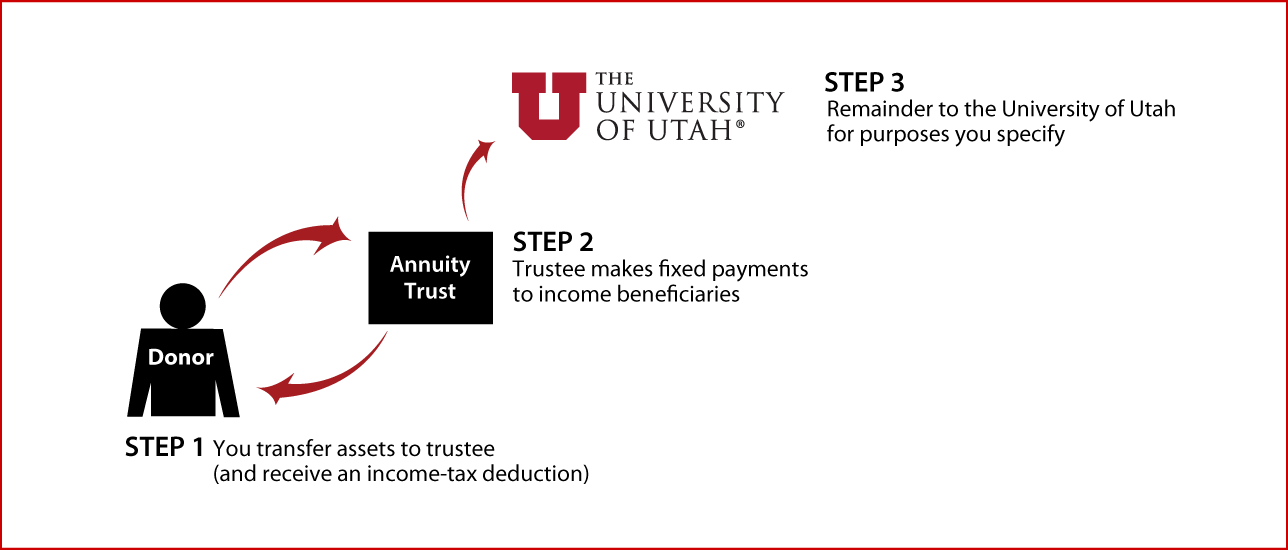Charitable Remainder Annuity Trust

How It Works
- Create trust agreement stating terms of the trust; transfer cash or other property to trustee
- Trustee invests and manages trust assets and makes payments to income beneficiaries you designate
- Remainder to the University of Utah for purposes you specify
Benefits
- Payments to one or more beneficiaries that remain fixed for the life of the trust
- Federal income-tax deduction for the charitable remainder value of your interest
- No capital-gain tax when trust property is sold
- Trust remainder will provide generous support for the University of Utah
Request an eBrochure
Request Calculation
Contact Us
Jessica Nelson, J.D.
Senior Director of Legacy Giving
jessica.nelson@utah.edu
Tiffany Lopez, J.D.
Director of Legacy Giving
tiffany.lopez@utah.edu
Ann Morse, J.D.
Director of Legacy Giving
ann.morse@hsc.utah.edu
801-581-6824
© Pentera, Inc. Planned giving content. All rights reserved.
Disclaimer